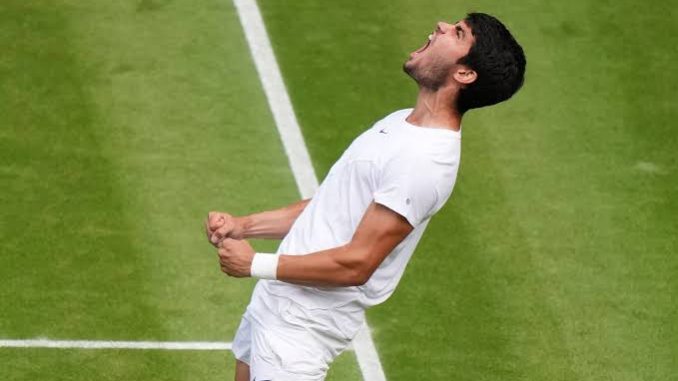
Breaking news: Carlos alcaraz say that he will not pray again due to the setup of the head of tennis….
Carlos Alcaraz, the young tennis prodigy, has made headlines with his recent announcement that he will no longer pray before his matches. This decision comes in response to his dissatisfaction with the current setup of tennis governance and the handling of recent deals and agreements within the sport.
Alcaraz, who has been a rising star in tennis, has often been seen praying before his matches, a personal ritual that reflects his beliefs and provides him with a sense of calm and focus. However, his recent statement indicates a profound shift in his perspective. The core of his frustration lies with what he perceives as a lack of fair representation and transparency in the tennis world, particularly concerning the management and decision-making processes at the highest levels of the sport.
The crux of the issue appears to be a disagreement over recent deals and agreements that Alcaraz believes have not been handled equitably. This dissatisfaction is not just about the specifics of these deals but also about the broader governance and organizational structure of tennis. Alcaraz has expressed concerns that the current leadership and decision-makers are not acting in the best interests of players, which he feels undermines the integrity of the sport.
Alcaraz’s decision to stop praying before matches can be seen as a symbolic gesture of his discontent. For him, prayer was more than a personal ritual; it was a statement of his values and a source of strength. By stepping away from this practice, he is making a broader statement about his disillusionment with the sport’s governance. It represents a move to distance himself from practices he no longer feels align with his values or support his beliefs about fairness and justice in tennis.
This development raises several questions about the future of Alcaraz’s career and his relationship with the sport. As one of the most promising young talents in tennis, Alcaraz’s stance may influence other players and provoke a reevaluation of how the sport is managed. His decision could potentially spark a wider discussion about the transparency and fairness of tennis governance and how deals and agreements are handled.
In response, tennis officials and governing bodies will likely need to address these concerns more openly. This situation might prompt reforms or at least a review of how decisions are made and how player interests are represented. The sport’s ability to adapt and address such concerns could impact its credibility and the support of its players.
Ultimately, Carlos Alcaraz’s announcement underscores a critical moment for tennis. It highlights the intersection of personal beliefs, professional practices, and the broader organizational dynamics of the sport. As Alcaraz navigates this new chapter, his actions and the responses from the tennis community will be closely watched, potentially leading to significant changes in the sport’s structure and governance.

Leave a Reply